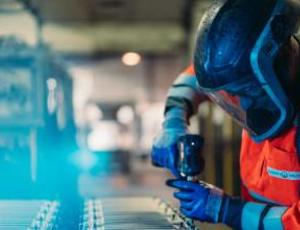When a majority of citizens have doubts about reindustrialization, recovery plans and climate commitments, how can a decarbonized economy emerge without giving up growth? There are solutions that already exist. Veolia’s Antoine Frérot and Estelle Brachlianoff participated in the 8th Economic Summit on “New Roads to Growth” held 2 December at the Palais de Tokyo in Paris.
Are cities suffocating? According to Veolia CEO Antoine Frérot, solutions exist to reduce air pollution in cities. They are simultaneously political, economic, technical and financial. As with the pollution of river water, considerable progress has been made: in the Seine in Paris, there were 3 species of fish in 1975 compared to 41 in 2019. In 45 years, the main pollutants have been eliminated effectively.
Air pollution is the most critical issue for human health today. There are two main types of air pollution: fine particles, which are dangerous to health (7 million deaths per year worldwide according to the WHO), and carbon dioxide (CO2), which affects the climate. In addition, inside buildings open to the public, air pollution is higher than outside. Solutions exist to clean up indoor air and have yet to be deployed: in Raincy, France (Paris region), Veolia treats and refreshes the air in school classrooms, at a cost of 5 euros per student per month. We now know that fine particles pollute the outside air in cities from three sources of emissions: vehicle exhaust; abrasion from brakes that emit particles, such as those on metro trains; and emissions from individual and industrial chimneys that could be equipped with filters.
Recycle to emit less CO2
All human activities emit CO2, especially the production of goods. To limit emissions, it is necessary to recycle as many products as possible and to manufacture new products with recycled materials, such as plastics and metals (a recycled plastic water bottle means 70% less CO2). Energy needs to be decarbonized, using green energy (biomass and renewable energy) and capturing waste heat wherever possible. Solutions for capturing residual CO2 and reusing it have yet to be invented, such as by fertilizing the soil. Veolia, with the activities of Suez, will develop these solutions.
We also have to internalize the cost of pollution. With the ‘polluter pays’ principle, cleaning up will cost less than polluting. Everyone wants to live in a clean world. Once we can no longer live by polluting the planet, we will do what it takes to clean it up, said Antoine Frérot.
“Beyond regulations, it is the solutions that must be reproduced and multiplied.”
Estelle Brachlianoff, Veolia Chief Operating Officer, took part in a debate with three women business leaders against Yannick Jadot, Ecologist candidate for the 2022 French presidential election, on the theme: “[Presidential] candidates face women entrepreneurs”.
“As a world champion of ecological transformation, our business is the ecology of solutions. Our customers ask us every day for concrete solutions where the consumer is reconciled with the citizen. One example: in Vendée (France), Veolia reuses wastewater by recharging a natural reservoir to produce drinking water. Water is a resource too precious to be used only once. In Spain, 15% of wastewater is already reused. In the Languedoc (France), Veolia irrigates vineyards with treated wastewater to preserve the water table.
In Europe, we have a model based on partnerships. Our model is different from the more state-run Chinese model and the more privatized Anglo-American model. Beyond regulations, it is the solutions that must be reproduced and multiplied. For example, to recycle electric vehicle batteries, Veolia, together with Renault and Solvay, has built an industrial pilot to extract nickel, cobalt and lithium. This solution will produce raw materials locally and create many jobs,” concluded Estelle Brachlianoff.






